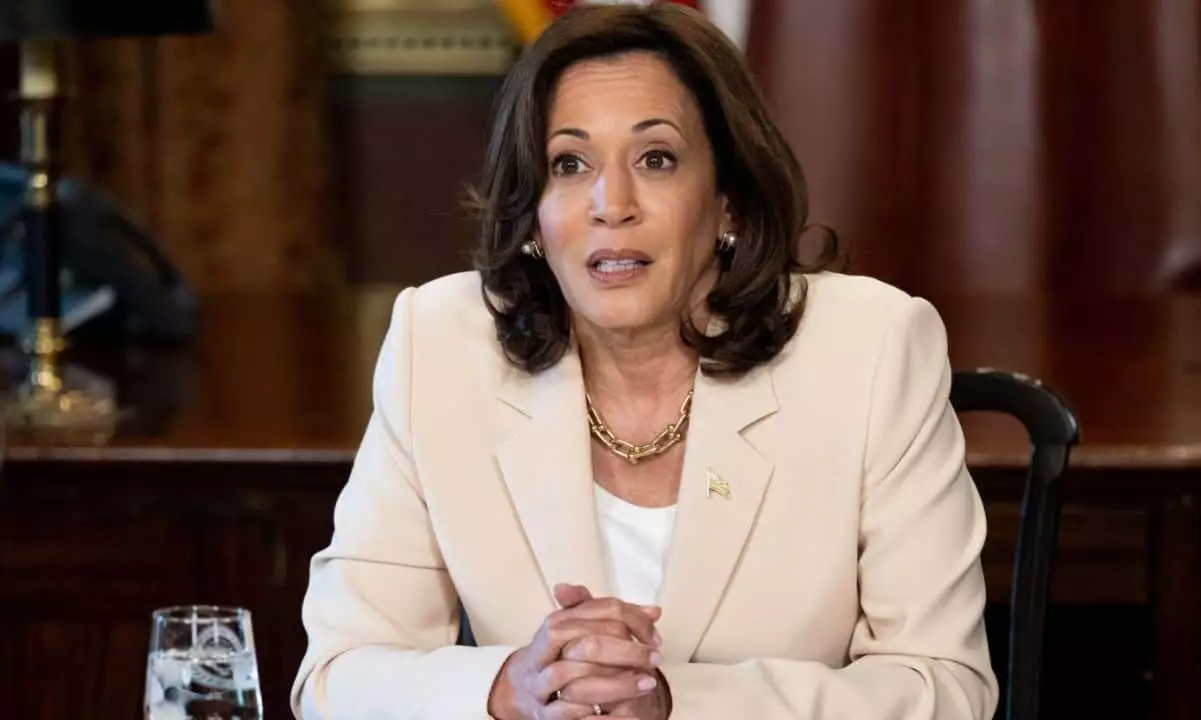In the dynamic landscape of U.S. politics, the issue of cryptocurrency has emerged as a pivotal topic that resonates with a diverse array of voters, especially those from minority communities. Vice President Kamala Harris recently made headlines with her commitment to developing digital asset policies aimed at protecting crypto investors, particularly among black men. This initiative forms part of a broader electoral strategy targeting men of color, whom the Harris campaign views as crucial for electoral success in the upcoming presidential elections. However, the vague nature of her promises raises questions about their viability and genuine intent.
On October 14, the Harris campaign issued a statement outlining its focus on creating a regulatory framework that supposedly safeguards the interests of black men and other marginalized groups in the cryptocurrency market. Harris highlighted that 20% of the black population in America has engaged with cryptocurrency, underscoring a significant trend among minority communities seeking financial empowerment through these digital assets. She has highlighted the potential of cryptocurrency and blockchain technology to provide previously excluded populations access to essential financial services—an important step towards economic inclusion.
While these sentiments sound promising, the announcement was characterized by a conspicuous lack of specificity. Critics have pointed out that Harris refrained from detailing what this regulatory framework would entail, leaving consumers and industry stakeholders in a state of uncertainty. Observers noted that during a subsequent event in Erie, Pennsylvania, Harris avoided discussing key crypto terminology, further confusing her stance on an issue that demands clarity and direction.
Critics have wasted no time in scrutinizing Harris’ approach, characterizing it as superficial at best. Notably, Bitcoin Magazine’s Nikolaus Hoffman referred to her as “the worst candidate for Bitcoin,” asserting that her campaign pledge appeared race-based rather than rooted in a substantive understanding of the crypto landscape. This criticism reflects a broader sentiment that Harris’ lack of detailed plans could undermine the very community she seeks to empower.
In stark contrast, former President Donald Trump, now positioning himself as the “Crypto President,” has seemingly capitalized on this vacuum. After years of skepticism about cryptocurrencies, Trump has made a dramatic pivot, promising to establish a more favorable regulatory environment for digital currencies. His team has offered more concrete proposals, including the establishment of a Bitcoin advisory council, demonstrating a commitment that many find lacking in Harris’ narrative.
The juxtaposition of Harris’s and Trump’s approaches highlights a fundamental divergence in political strategy. While Harris is emphasizing targeted outreach to men of color in her crypto message, Trump’s more generalized pro-crypto rhetoric has gained traction, suggesting that voters may prefer clarity and action over intentions and vague promises.
The messaging from both political figures also signifies a larger trend within the cryptocurrency space. Many investors and crypto advocates worry that excessive regulation could stifle innovation and hinder growth within this burgeoning sector. The Biden administration, through figures like SEC Chair Gary Gensler, has faced criticism for its perceived regulatory overreach, causing polarization among crypto enthusiasts—especially as Harris aligns herself with an administration that some view as anti-cryptocurrency.
Moreover, Trump’s recent engagement with the crypto community, illustrated by his visit to a New York bar accepting crypto and his family’s involvement in a new DeFi project, indicates a concerted effort to entwine himself with the future of finance. In this era of rapid technological evolution, such alliances can significantly sway public perception and voting behavior, especially among younger, tech-savvy voters.
As the narrative surrounding cryptocurrency continues to evolve in the realm of U.S. politics, the effectiveness of candidates’ strategies will be put to the test as November approaches. The contrasting approaches of Kamala Harris and Donald Trump highlight the complex intersection of race, technology, and economic empowerment in America. It remains to be seen how these dynamics will influence voter sentiment and ultimately shape the future of cryptocurrency regulations in the United States. Ensuring that all communities, especially those historically marginalized, have a seat at the table in the digital economy is essential, and clarifying intentions and realities will be crucial for any candidate hoping to lead the charge.

